Ex-Iraqi Premier Says No Foreign Ground Forces Involved In Defeating ISIS
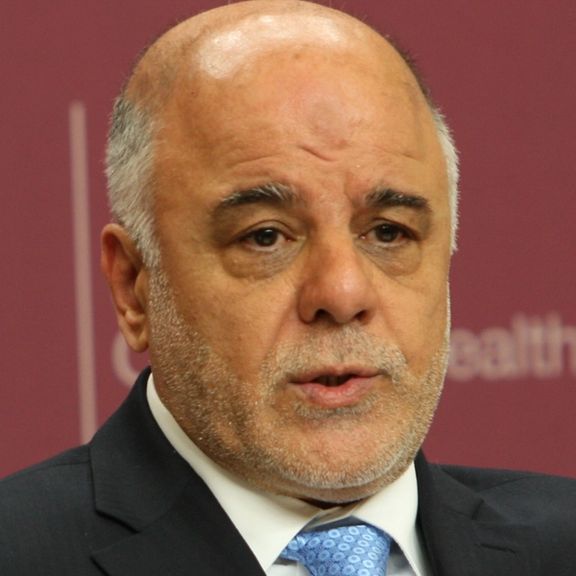
Former Iraqi Prime Minister says the operation to liberate Iraq from ISIS was planned and carried out by Iraqi fighters and not by any foreign ground forces.

Former Iraqi Prime Minister says the operation to liberate Iraq from ISIS was planned and carried out by Iraqi fighters and not by any foreign ground forces.
In a tweet on Saturday on the fifth anniversary of the fall of ISIS, former Iraqi Premier Haider Al-Abadi said no foreign ground forces were involved in liberating Iraq from the terrorist group.
This comes as the Islamic Republic in recent years attributed the defeat of ISIS to the Revolutionary Guards (IRGC) Qods Force Commander Qassem Soleimani.
Soleimani, who was killed in a targeted US drone strike as he arrived in Baghdad airport on January 3, 2020, announced the end of ISIS in Iraq and Syria in a message to Supreme Leader Ali Khamenei on November 21, 2017.
In his message, Soleimani hailed the role of the Islamic Republic, especially the president, parliament, ministry of defense, and armed and security organizations in supporting the governments and nations of Iraq and Syria.
In response, Khamenei said “you have served not only the countries of the region and the Muslim world, but also all nations by defeating ISIS.”
In response to rapid territorial gains made by the ISIS during the first half of 2014, many states began to intervene against the terrorist group in both the Syrian and Iraq.
US Special Operations Command announced in February 2017 that their military efforts had resulted in the deaths of more than 60,000 Islamic State militants over the course of a two-year campaign. US advisors and air power played a critical role in defeating the jihadist group.
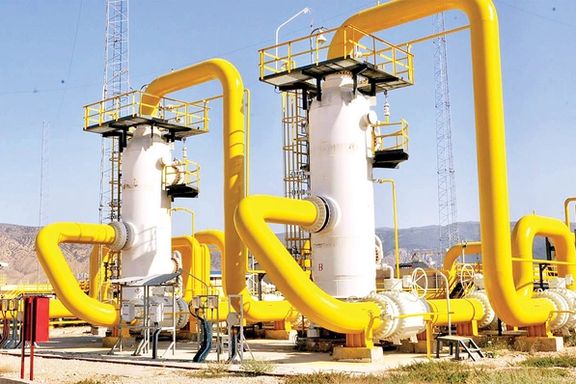
A couple of industrial units in Iran say they have received warnings to lower their natural gas consumption otherwise their ration would be cut off.
ILNA news website reported Monday that Iran’s Oil Ministry has released the list of petrochemical units that must stop or reduce their gas consumption. In this letter, petrochemicals producers in Masjid-i Suleiman, Zagros, Shiraz, Bandar Imam, and several others must reduce their consumption.
However, people on social media report some petrochemical industries have already stopped production due to the gas cuts.
Lowering gas consumption means a decrease in petrochemical production, while with a decrease in oil sales, the country is in dire need of foreign currency from petrochemical exports.
The government claims it has no plans to cut off gas from household and instead has reduced gas deliveries to the industrial sector due to its inability to extract enough gas.
Jafar Qadri, a lawmaker, has told ILNA the gas production at Parsian Refinery in southern Fars province has decreased from 80 million cubic meters to 50 million per day, adding that some platforms in South Pars have also faced dire problems.
With cold weather gripping Iran in recent days and a surge in demand, shortages of natural gas have become acute.
Iran has the second largest reserves of natural gas in the world but is barely able to satisfy domestic demand as production steadily declines because of lack of investments in the oil and gas sector.

Criticisms continue in Iran over China’s endorsement of a territorial claim by the UAE, as a top politician Sunday called Beijing’s action “humiliating”.
The former chief of the Iranian parliament's foreign policy and national security committee Hesmatollah Falahatpished called Iran's subdued reaction to China's suggestion that Tehran should negotiate the ownership of three Persian Gulf islands with Abu Dhabi as humiliating.
Meanwhile, China's endorsement of the December 9 GCC statement appears to have torpedoed Supreme Leader Ali Khamenei's much-heralded policy pf “Looking East.”
In his interview with Didban Iran website, Falahatpisheh accused those in charge of Iran's foreign policy of having illusions about strategic ties with China. He was obliquely pointing at Supreme Leader Ali Khamenei, the architect of Iran's "Looking East" policy since 2018, that called for relying on China and Russia in defying the United States.
Earlier, Khamenei had called China "an independent and trustworthy" partner and had urged expanding Iran's ties with Beijing during a meeting with Chinese President Xi Jinping in January 2016.
Falahatp[isheh also recalled that that Russians have sacrificed Iranian forces in Syria by putting them in the frontline of the military campaign to keep Bashar Assad in power. He said: In a world where countries maintain relations based on mutual interests, we see that the number of Iran's enemies in the world are on the rise.
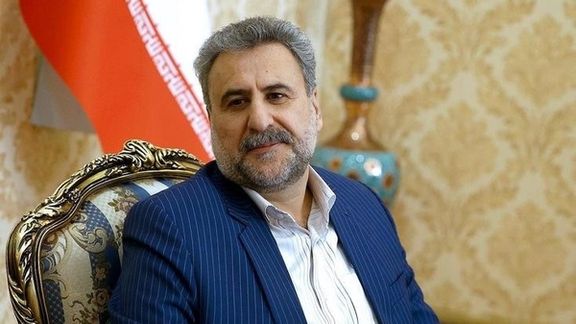
The conservative politician said China's action has been a political shock because a partner signed on a statement undermining Iran's territorial integrity. Falahatpisheh suggested that Tehran should change its policy toward Beijing.
He also criticized Iranian officials for not officially summoning China's ambassador in Tehran. Foreign Ministry officials in Tehran said they had a "meeting" with Beijing's ambassador and told him that Iran is not pleased with what China did. This was so humiliating, Falahatpisheh said.
He reminded Iranian diplomats that China and Russia basically do not believe in strategic relations with a country like Iran, which is weak and isolated.
Meanwhile, in an interview with Rouydad24 website in Tehran, Mehdi Motaharnia, a lecturer on international relations, said Iran was counting on China, but China's behavior showed what matters for other countries is their national interest rather than fixated ideologies. He added: In politics, there are no permanent friends or enemies.
Motaharnia argued that China's behavior should not surprise anyone. What has surprised Iranians is that they were heavily under the influence of their government's propaganda about having a strategic alliance with China. But that propaganda based on wishful thinking was meant to strike a balance in foreign policy to fill the void after the US withdrew from the 2015 nuclear deal.
While Iran continues its “permanent” confrontation with the United States, it wishes to pretend that it has big allies such as Russia and China that prevent its international isolation, Motaharnia said, adding that neither Russia nor China see Iran as a strategic partner. It is Iran that believes it can be a strategic market for those countries.
"This is wrong," said Motaharnia, adding that "It is Iran's wrong perception of international relations that agitates the public opinion in Iran. China is simply following its own interests in the region. So, it is looking for more stable countries to guarantee its profits. This is what pushes China toward Arab countries, particularly Saudi Arabia."
He added that "the tension resulting from the protests in Iran is also another factor that encourages China to reach out to Saudi Arabia, where it uses the term 'The Gulf' instead of Persian Gulf. Motaharnia charged that there is no realism in Iran's domestic and international policies and Tehran is paying the price for doing away with realism."
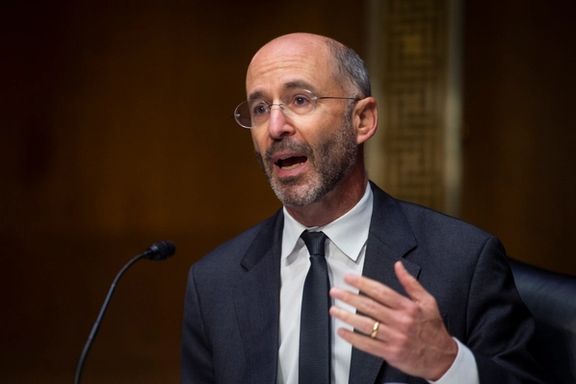
A US diplomat says it is meaningless for the Iranian regime to be a member of the UN Commission on the Status of Women while it violates women's civil rights.
In an interview with MSNBC Sunday US Special Envoy for Iran Robert Malley said, “it makes no sense for Iran to be sitting on a commission whose role is to promote the rights of women when they are doing exactly the opposite.”
He said the first step by the United Nations was to create a fact-finding mission and the second move will happen on Wednesday when there will be a vote to kick Iran off the Commission on the Status of Women (CSW).
CSW is the principal global intergovernmental body exclusively dedicated to the promotion of gender equality and the empowerment of women.
Meanwhile, Iranian actress and human rights advocate Nazanin Boniadi said in a tweetthat the call to expel the Islamic Republic from the UN commission has its roots among Iran’s women’s rights defenders.
“Any effort to paint this as a Western-led effort negates their voices and is intended to prevent Islamic Republic’s expulsion,” she added.
Washington has circulated a draft resolution, seen by Reuters, that also denounces Iran's policies as “flagrantly contrary to the human rights of women and girls.”
The 54-member UN Economic and Social Council (ECOSOC) will vote on whether to oust Iran from the commission on December 14.
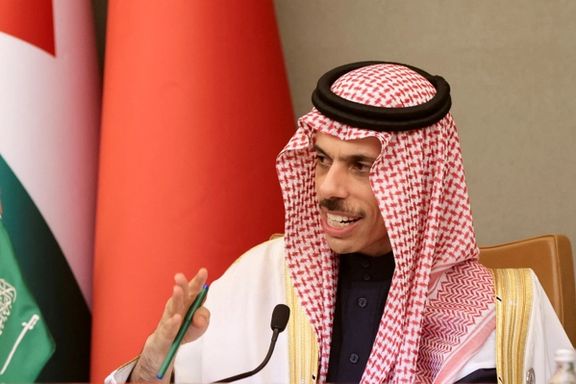
Saudi Arabia's foreign minister said Sunday that Iran's Persian Gulf Arab neighbors would act to shore up their security if Tehran were to obtain nuclear weapons.
Indirect US-Iranian talks to salvage a 2015 nuclear pact between global powers and Iran, which Washington exited in 2018, stalled in September. The UN nuclear chief has voiced concern over a recent announcement by Tehran that it was boosting enrichment capacity.
Iran reportedly has amassed enough 60-percent enriched uranium that if it decides to purify the fissile material further, it could be sufficient for at least one nuclear bomb.
"If Iran gets an operational nuclear weapon, all bets are off," Prince Faisal bin Farhan Al Saud said in an on-stage interview at the World Policy Conference in Abu Dhabi when asked about such a scenario.
"We are in a very dangerous space in the region...you can expect that regional states will certainly look towards how they can ensure their own security."
The statement came shortly after the visit of China’s President Xi Jinping to Saudi Arabia. Riyadh is seen trying to reduce its reliance on the United States. Reports last year said that Saudi Arabia appears to be building ballistic missiles with Chinese help.
The nuclear talks have stalled with Western powers accusing Iran of raising unreasonable demands, and focus shifting to the Russia-Ukraine war as well as domestic unrest in Iran over the death in custody of 22-year-old Mahsa Amini.
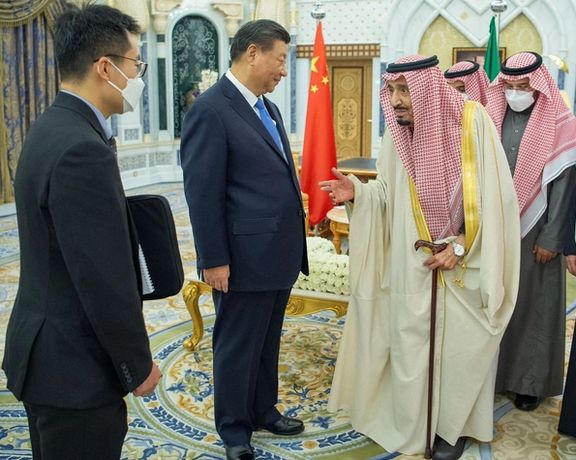
Though Riyadh remained "skeptical" about the Iran nuclear deal, Prince Faisal said it supported efforts to revive the pact "on condition that it be a starting point, not an end point" for a stronger deal with Tehran.
Sunni-ruled Gulf Arab states have pressed for a stronger agreement that addresses their concerns about Shi'ite Iran's missiles and drone program and network of regional proxies.
"The signs right now are not very positive unfortunately," Prince Faisal said.
"We hear from the Iranians that they have no interest in a nuclear weapons program, it would be very comforting to be able to believe that. We need more assurance on that level."
Iran says its nuclear technology is solely for civil purposes, but its policy of enriching uranium to 60 percent has no civilian use and only a short step away from bomb-level purity of 90 percent.
A senior Emirati official said on Saturday that there was an opportunity to revisit "the whole concept" of the nuclear pact given the current spotlight on Tehran's weapons with Western states accusing Russia of using Iranian drones to attack targets in Ukraine. Iran and Russia deny the charges.
Anwar Gargash, the diplomatic advisor to the president of the UAE, reiterated a call for "explicit" security assurances from traditional Western allies, especially in dealing with the threat from Iranian drones that Gulf states have long warned about.
It was not until these weapons "made it into the Ukraine theatre" that they were "catapulted" into the spotlight, and "suddenly the world rediscovered this issue", Gargash said.
"This is an opportunity for all of us to come and revisit the whole concept," Gargash said, referring to the Iran nuclear pact.
With reporting by Reuters
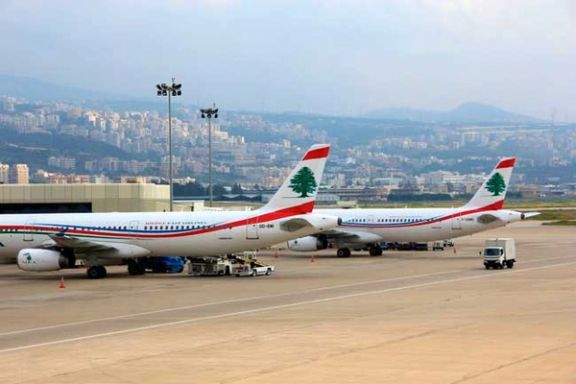
Israel has reportedly threatened to bomb Beirut’s airport if it is used by the Iranian regime to smuggle weapons.
London-based Asharq Al-Awsat quoted on Saturday some political sources in Tel Aviv as saying that Israel will not be lenient with the transport of Iranian weapons through Beirut airport, warning to launch military strikes if the airport is used for Iranian ammo deliveries.
Israel was informed of a report broadcast by “Al-Arabiya Channel” about the Islamic Republic’s plans to use a new smuggling route for its weapons through Beirut after the failure of the Damascus corridor, sources told the daily.
They also added that Israel has launched a probe into Tehran’s attempt to smuggle weapons through civilian flights to Beirut airport.
Asharq Al-Awsat said they have also confirmed that Israel’s air raids on Syria in recent years helped prevent smuggling of Iranian weapons to its armed militias in Syria and in Lebanon.
This comes after a visit made by Hezbollah leader Hasan Nasrallah to Syria where he met Syrian President Bashar Assad two weeks ago.
The sources say Nasrallah discussed the difficulties faced by the Islamic Republic and Hezbollah in Syria because of the Israeli strikes there.
Israel has in recent months intensified strikes on Syrian airports and air bases to disrupt Iran's increasing use of aerial supply lines to deliver arms to allies in Syria and Lebanon including Lebanon's Hezbollah.